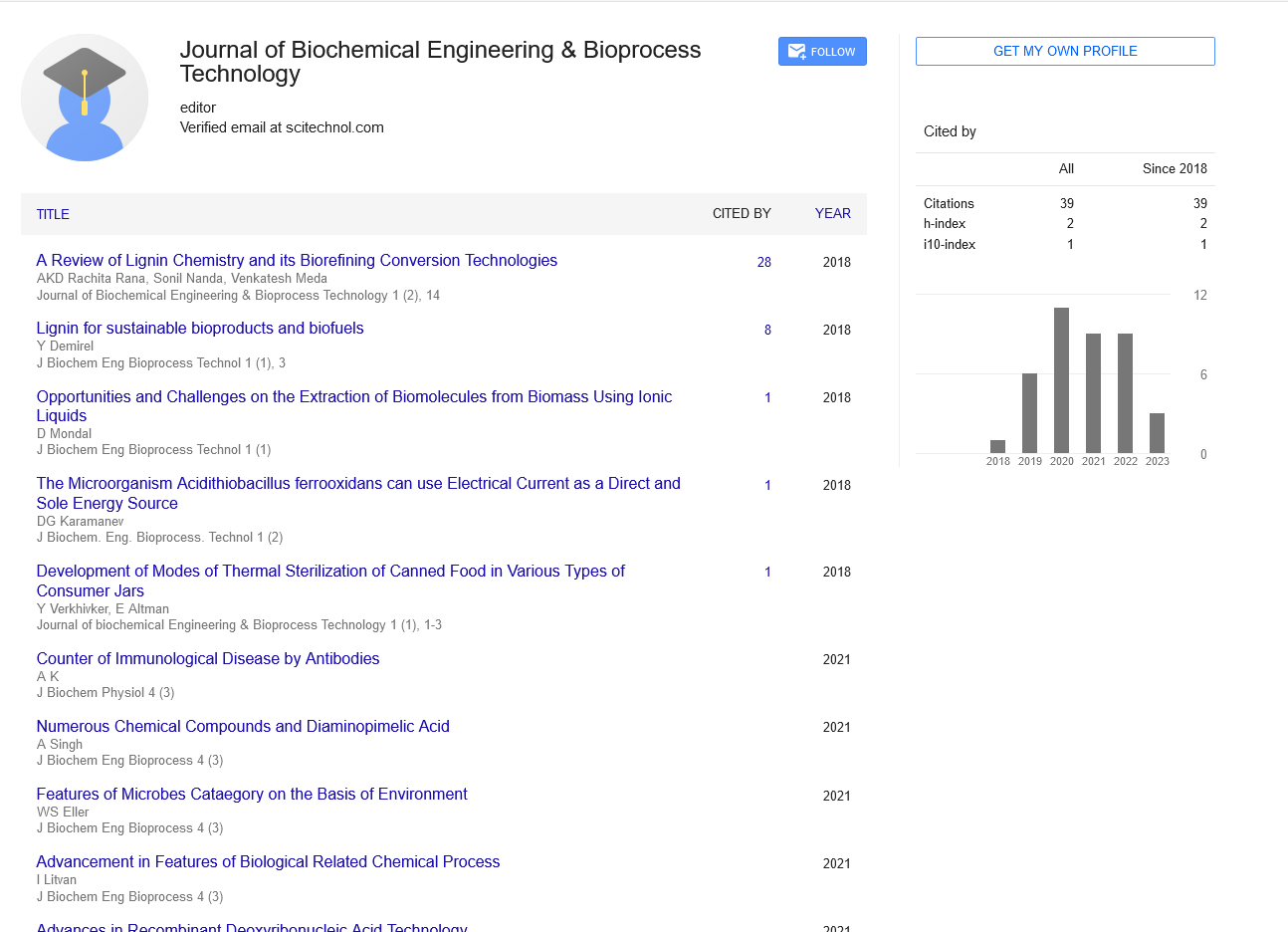Editorial, J Biochem Eng Bioprocess Vol: 4 Issue: 6
Monoclonal Antibody- Drug Conjugation
Kiran Kumar M*,
Department of Biotechnology, Ramaiah Institute of Technology Bengaluru, India
*Corresponding Author:Kiran Kumar Mâ??â??â??â??â??â??â??
Department of Biotechnology, Ramaiah Institute of Technology Bengaluru, India
E-mail:kiran@gmail.com
Received: Novemer 1, 2021; Accepted date: November 15, 2021; Published date: November 22, 2021
Abstract
Developing drugs that are ready to target disease and spare healthy tissue has beena long?time goal of both oncologic and non?oncologic drug development. Sincethe late nineteenth century, it's been recognized that effective treatment of disease by therapeutic agents is improved when therapeutics demonstrate selectiveness for foreign bodies (bacteria) or diseased cells and spare healthy cells.
Keywords: Monoclonal
Editorial Note
Developing drugs that are ready to target disease and spare healthy tissue has beena longâ?time goal of both oncologic and nonâ?oncologic drug development. Sincethe late nineteenth century, it's been recognized that effective treatment of disease by therapeutic agents is improved when therapeutics demonstrate selectiveness for foreign bodies (bacteria) or diseased cells and spare healthy cells. The development of novel and highly selective Antibody–Drug Conjugates (ADCs) has moved us closer to the present goal in cancer therapy. Agents such as Trastuzumab Emtansine (Tâ?DM1) and brentuximab vetoing have shown promising results, particularly in patients with advanced disease.
Who have progressed on other treatments? Combining cancerâ? specific antibody targets with potent cytotoxic therapies makes these agents revolutionary in their efforts to deliver potent treatments while minimizing adverse effects, coming closer to the “magic bullet” concept of Ehrlich and other early twentiethâ?century pharmacologists. Early on, the potential for monoclonal antibodies within the detection and treatment of cancer was recognized as promising. The utilization of antibodies to improve tumor localization was of great interest within the 1970s and 1980s and was a primary step in transitioning the utilization of those antibodies from tumor identification to tumor treatment.
Radioactive iodine was conjugated to authorâ?associated antibody to effectively deliver cytotoxic doses of radiation to tumor sites in women with metastatic ovarian cancer with lower doses of radiation to surrounding tissues and therefore the remainder of the body .During the 1980s and 1990s, the event of monoclonal antibodies for therapeutic treatment of cancers delivered promising results. In 1997, rituximab, an antiâ?CD20 antibody that targets malignant B cells, was initially approved to be used in relapsed follicular lymphoma. Trials demonstrated that in lowâ?grade lymphomas, this agent had a response rate of 48%.
Importantly, this therapy was relatively well tolerated with only 12% grade 3 and 3% grade 4 toxicity. Subsequent trials established the role of rituximabin aggressive Bâ?cell lymphomas because it significantly improved survival whenadded to plain chemotherapy .Following the initial approval of rituximab, trastuzu mob was approved in1998 for the treatment of Human Epidermal Protein Receptorâ?2 (HER2) overexpressing Metastatic Carcinoma (MBC). Supported significant survival benefits in phase III clinical trial clinical trials; this agent was approved together with paclitaxel for the firstâ?line treatment of HER2 overexpressing MBC and as one agent for those that had progressed on one or more previous chemotherapy regimens. Almost like rituximab, trastuzumab was well tolerated with few side effects. The most safety signal reported was cardiomyopathy.
 Spanish
Spanish  Chinese
Chinese  Russian
Russian  German
German  French
French  Japanese
Japanese  Portuguese
Portuguese  Hindi
Hindi 